Urban Art
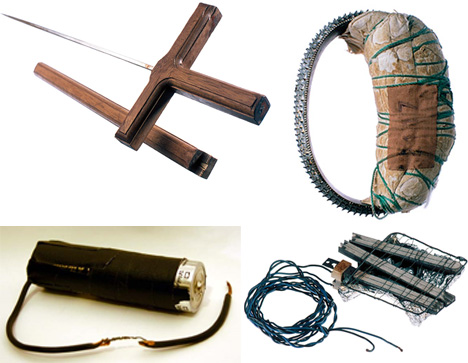
Being locked up is no picnic, to be sure, and people in prison have to learn to do without the small comforts of life on the outside. But, thanks to books and movies about prison life, it’s pretty well-known that inmates have an endless capacity for invention. The empty peanut butter jar or used Popsicle stick that anyone else would throw away becomes a valuable tool in prison. Most of these items are considered contraband and would be confiscated if found, but that doesn’t stop inmates from recycling and repurposing the materials at hand to create some truly astonishing items.
Machines and Electronics
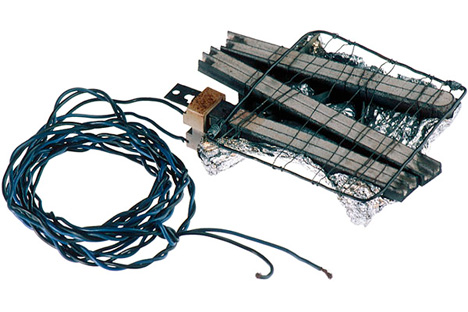
Some low-security prisons allow the use of hot plates in cells, but in those that don’t, prisoners still find ways to cook their own food. This cell stove/grill was made by a prisoner in Germany using a broken heater, aluminum foil, and some wire.
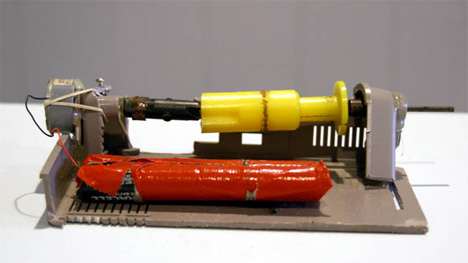
Whether it was meant to be used for making art, tools or weapons is a mystery, but this mini-lathe is a great example of how prisoners use the items around them to make ingenious machines. A few discarded pieces of plastic, some batteries, wires, tape and rubber bands, and you’re in business.
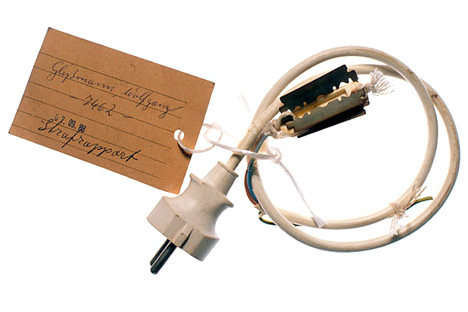
Since alcohol isn’t allowed in prison, prisoners have been making jailhouse booze forever. An essential part of any inmate’s still is an immersion heater like this one. Razor blades and an electric cord make up the (presumably extremely dangerous) heater pictured.
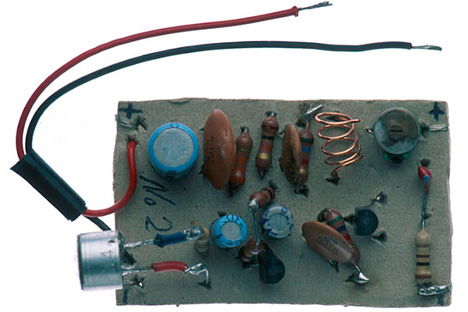
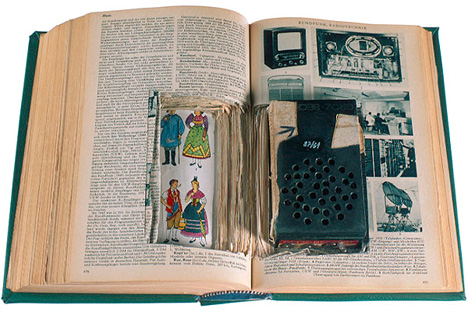
Inmates – especially those with contraband to hide – are constantly on the lookout for cell shakedowns. They can more easily prepare for the searches if they have a device like this bug. Provided that they can somehow sneak it into the guard room, this tiny transmitter will allow a prisoner to listen to whatever is going down in the guards’ domain. Made from radio recorder parts, the little device can also be used to transmit from one cell to another, provided the second cell has a receiver like the one pictured above, hidden in an encyclopedia.
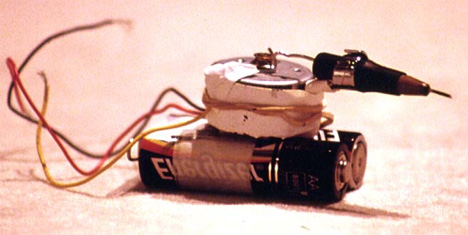
Prison tattoos are made in a variety of ways: some inmates use razor blades to etch the skin before rubbing ink in, some use a paper clip or staple to embed the ink, and some find a way to make an improvised tattoo gun. All it takes is a power source (like batteries), a small motor (we hear the N64 rumble pack is popular), a sewing needle or piece of sharpened wire and a few miscellaneous pieces to hold it all together.
Home Comforts
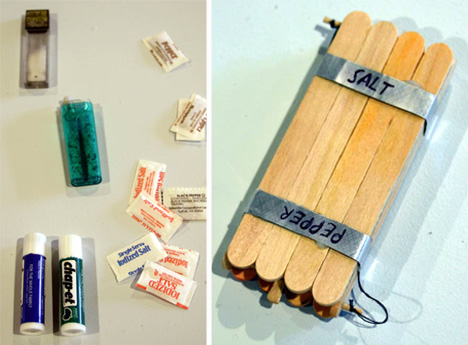
When you’re cooking dinner on your cleverly engineered hot plate, chances are you’ll want to season your food. But since you aren’t allowed to take the cafeteria salt and pepper shakers back to your cell, these makeshift salt and pepper shakers are just as good.
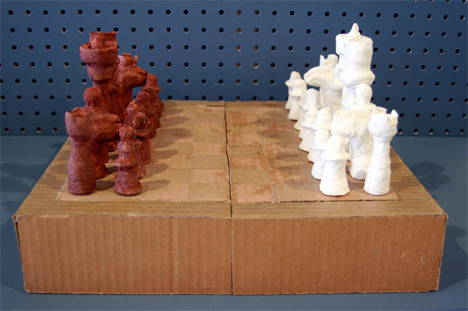

Boredom sets in easily in prison, so prisoners are always coming up with ingenious ways to keep themselves busy. These dice and this beautiful chess set were made of paper mache, which in prison consists of toilet paper, water and glue.
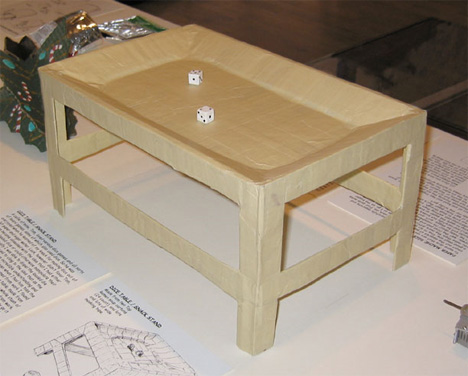
This little table, made from ramen noodle packages and masking tape, is perfect for playing dice on or enjoying a snack in your bunk. This is a perfect example of how prisoners recycle everything possible to make things that they want or need. Their never-ending inventiveness adds a touch of comfort, order and beauty to an otherwise barren and unpleasant environment.
Candles aren’t allowed in prison for the obvious reasons that they can easily start a fire or be used as weapons. That doesn’t mean that they can’t be found, though. Prisoners use empty yogurt or applesauce containers, baby oil, and thread to make crude candles for seeing after lights-out, sterilizing needles, and whatever other activities might require an open flame.
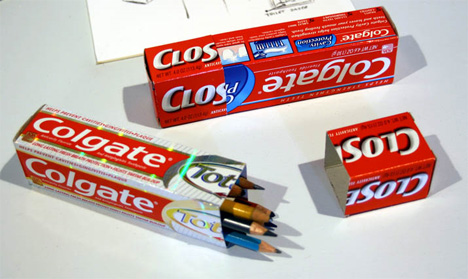
Many inmates use art as a way to cope with incarcerated life. These pencil boxes, cleverly made from discarded toothpaste boxes, can store the artistic prisoner’s colored pencils.
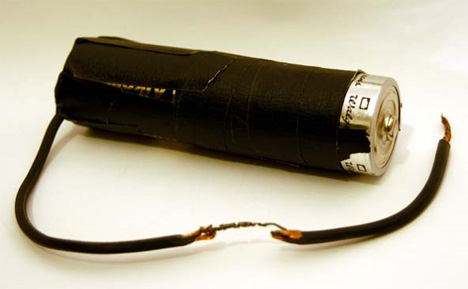
When an inmate needs to light a homemade candle or hard-earned cigarette, obviously he can’t just pull a lighter out of his pocket. There are many ways to get access to fire (or at least a spark) in prison, but this one is simple while boasting a pretty intelligent design. A wire is taped to the negative side of the battery; when you want a light, just touch the other side of the wire to the positive side of the battery and the exposed bit of wire in the middle heats up.
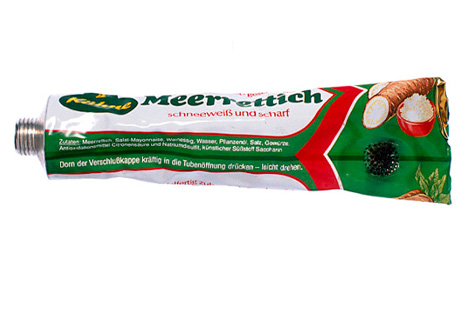
If you manage to get hold of some weed in prison, finding a way to smoke it is the easy part. Prisoners have made pipes out of tons of different materials, but this one, made from an empty horseradish tube, is truly inventive. When rolled up, it looks completely innocent.
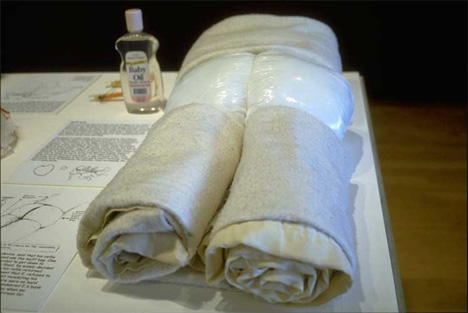
Being locked up for long periods of time makes you miss a lot of things, not the least of which is sex. When you haven’t seen an actual woman in months or years, a rolled-up blanket with a plastic bag inside and a generous squirt of baby oil starts to look pretty good. This is one area in which both male and female prisoners seem to have an endless supply of creativity; prison sex toys have been made out of just about everything at one time or another.
Weapons
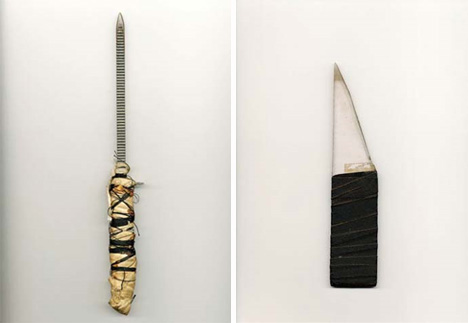
Prison is a notoriously dangerous place. Weapons are, of course, not allowed, but that poses no problem for inmates determined to do some damage. The shiv on the left was made from a sharpened carriage return from a typewriter. The one on the right is a piece of Plexiglass with a tape-wrapped handle. When using a Plexiglass shiv, inmates will often score the Plexiglass so that it breaks off in the victim, leaving the fingerprint-containing handle in the attacker’s possession so he can dispose of it.
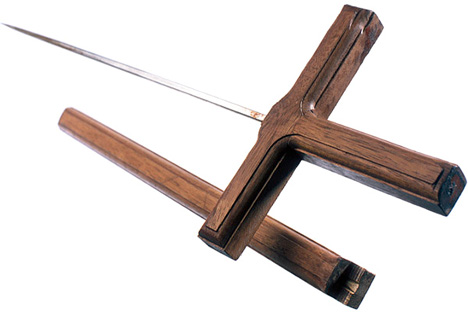
This terrifying-looking blade, concealed in a crucifix, was confiscated from an inmate in a German prison. It was made by the inmate in the prison workshop. This is a sophisticated example of a jailhouse shiv; most are made from primitive materials like chicken bones, sharpened toothbrush handles, and melted and hardened trash bags or Styrofoam cups. Some prisoners even coat their weapons in feces to increase the chance that the victim will develop a painful and dangerous infection.
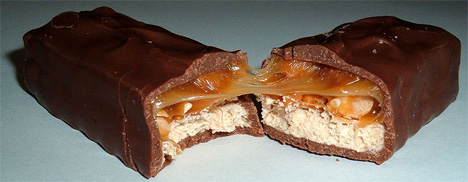
Candy bars as a weapon? Yes – in prison, anything goes. Candy bars are melted down on hot plates and the molten mess thrown into the face of the victim. The chocolate and caramel are extremely hot and harden very quickly, making them painful when they hit and difficult to get off of the skin. This DIY weapon may be primitive, but it’s effective.
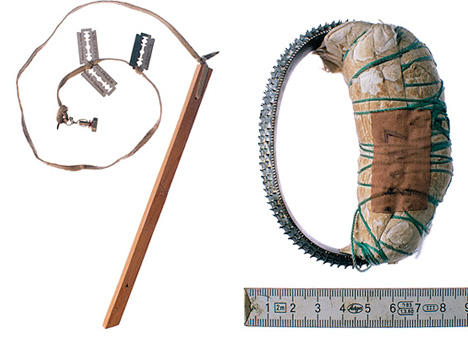
Prisoners tend to be pretty patient, given that most of them have plenty of time, so when they want to make something they are able to collect the pieces they need over time. The horrifying whip on the left is made from a shoelace and several razor blades. The “knuckleduster” on the right was made with a rasp probably stolen from the prison’s workshop.
Art
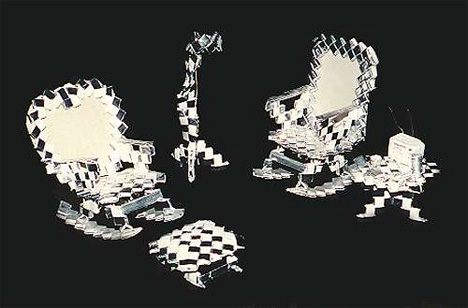
As mentioned above, prisoners often use art to occupy their time while incarcerated. The materials they use can be as simple as pens and paper, or they can get more elaborate. A common material is wrappers from chips, candy and gum. They fold the wrappers into thin strips and then weave them together to create sculptures and other items.
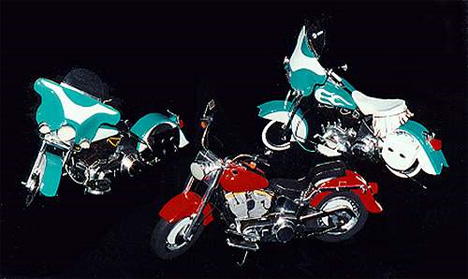
Believe it or not, these vibrantly-colored motorcycles are all made of garbage and scavenged items by Chip Jarrett, an inmate in Michigan. Jarrett’s motorcycles have been shown at several prison-themed art shows and sold to collectors.
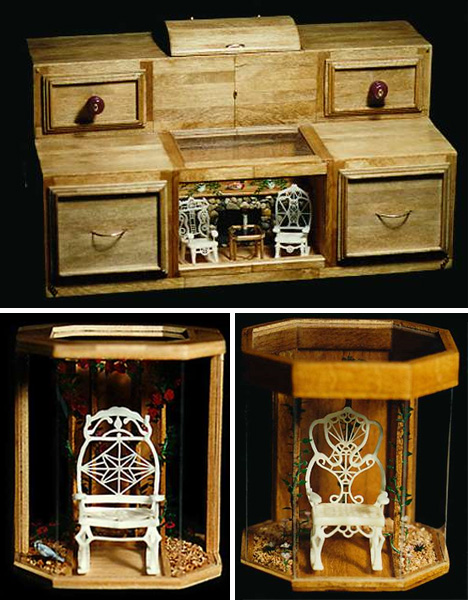
These fascinating pieces of art were created by Michael Harms, an Illinois inmate. The chairs are carved from Ivory soap (the standard-issue soap doesn’t work for his purposes) and sewing needles. They are incredibly detailed and intricate, especially for their size: none are more than a few inches high. Equally impressive is the fact that he makes the cases for the chairs, as well, using Popsicle sticks that he cuts with a nail trimmer. The stains for the wood are made with rust from steel wool and small amounts of color from colored pencils. The finished chairs can sell for several hundred dollars each.

No Response to "Urban Art"
Post a Comment